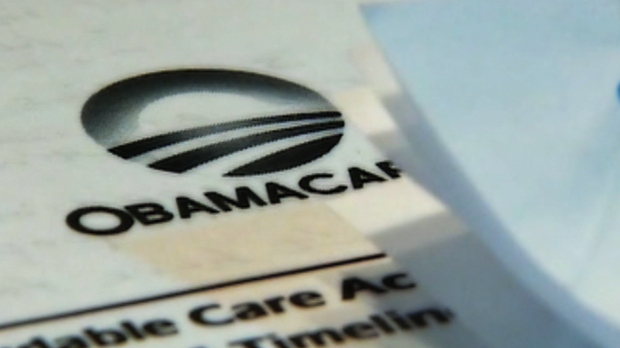That's because, just like other income-based government programs, the more you earn, the less assistance you receive. This disincentive to bringing home a bigger paycheck will shrink the labor force by the equivalent of 2.5 million workers by 2024, according to Congressional Budget Office estimates released this week.
Obamacare provides federal subsidies for those who make less than $46,000 for individuals and $94,200 for families of four in 2014. Because the subsidy levels are tiered based on income, a few extra dollars of pay can greatly lower your subsidy amount. And in some cases, it can actually cost you money.
Take a 50-year-old couple with two children. If they earn $94,000, they will receive a $3,345 subsidy and only have to pay $8,930 in premiums, according to the Kaiser Family Foundation subsidy calculator. But if their salary increases by just $1,000, they no long qualify for a subsidy and have to pay the full $12,275 cost of insurance.
"People can work less and make more," said Casey Mulligan, an economics professor at the University of Chicago, who has written about how part-time work will become attractive under Obamacare.
Share your story: Will you work less now that you have Obamacare insurance or Medicaid?
Others will just see their some of their extra income whittled away by a decline in the subsidy. But that may be enough to change their behavior, much as higher-income people who will be subject to a new Obamacare tax may not want to work as hard.
While lower-income adults still need money for food, shelter and other necessities, Obamacare can relieve them of the additional pressure of getting health care. So the CBO projects that many people will cut back on hours worked to remain eligible for assistance, but not walk away from their jobs.
! Top 5 Cheap Companies To Invest In Right Now
Look at someone who earns $29,000 a year, who would lose $115 in subsidies if she earned $1,000 more.
"You could bust a gut to $30,000, but then your subsidy goes down," Katherine Baicker, a health economics professor at Harvard. "You think maybe I should spend that time taking care of my kids."
In states that have opted to expand Medicaid -- about half the nation -- individuals earning just under $16,000 and families of four with incomes less than $32,500 can now qualify.
Some studies on Medicaid show how access to the program can affect work. In Wisconsin, for instance, employment among adults allowed into Medicaid in 2009 dropped 20% during the analysis period. And their quarterly earnings fell by $200 to $400, on balance, said study co-author Laura Dague, an assistant professor at Texas A&M.
 Will Obamacare affect health care costs?
Will Obamacare affect health care costs? For some, access to health insurance independent of their job will prompt them to leave the workforce entirely. They had remained employed only because they needed health insurance and had no other way of getting it previously, said Gary Claxton, director of the Health Care Marketplace Project at the Kaiser Family Foundation.
Those who may want to quit their jobs include people nearing retirement or folks who are ill or caring for a sick family member. The disabled may want to cut back, as may people working extra shifts. And some may prefer to have that extra time to spend as they want.
While they have no doubt that Obamacare will affect work habits, experts warn that though the CBO number may seem eye-popping, the reductions will be mainly at the margins. There were 155 million people in the labor market in December.
No comments:
Post a Comment